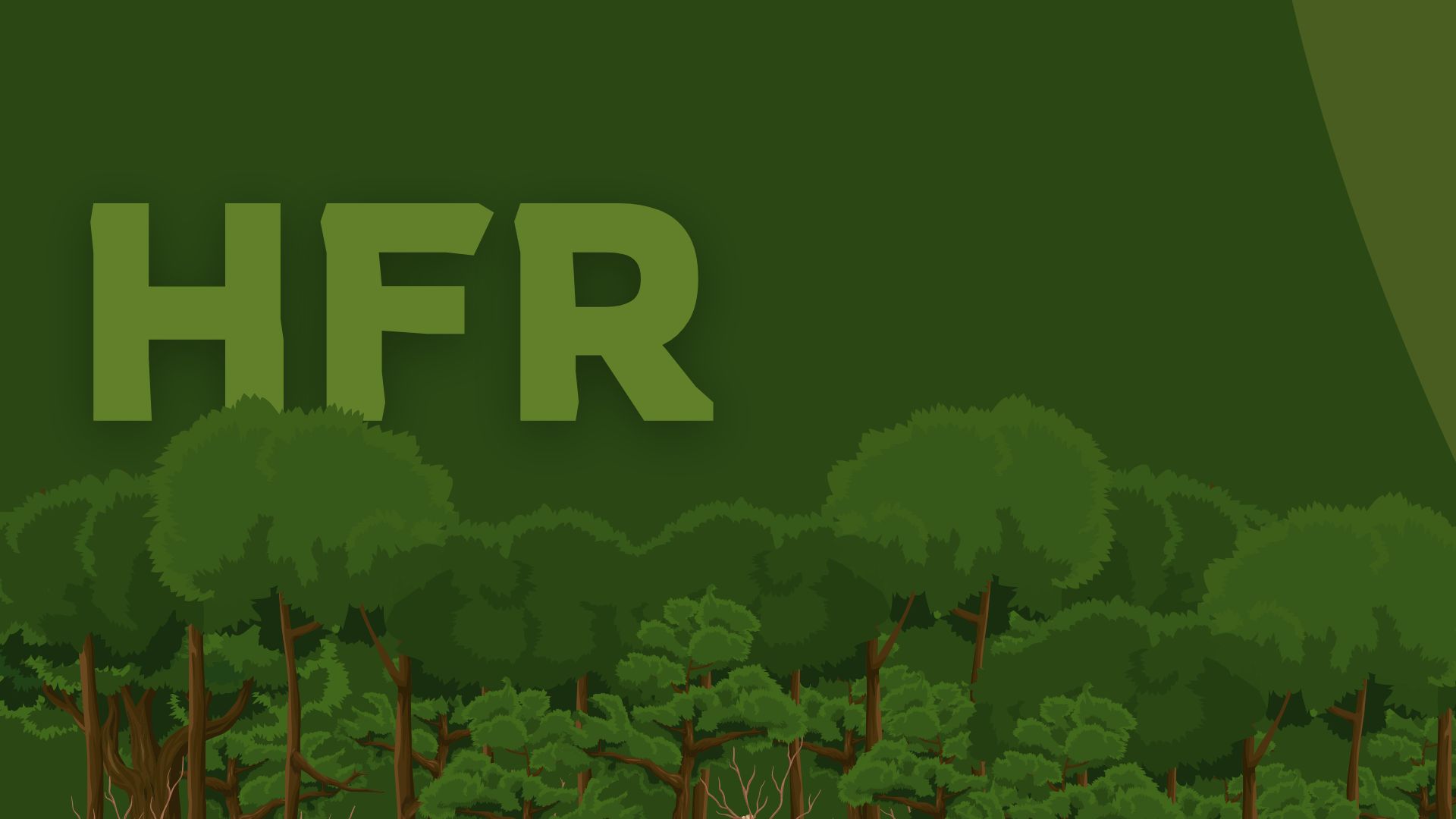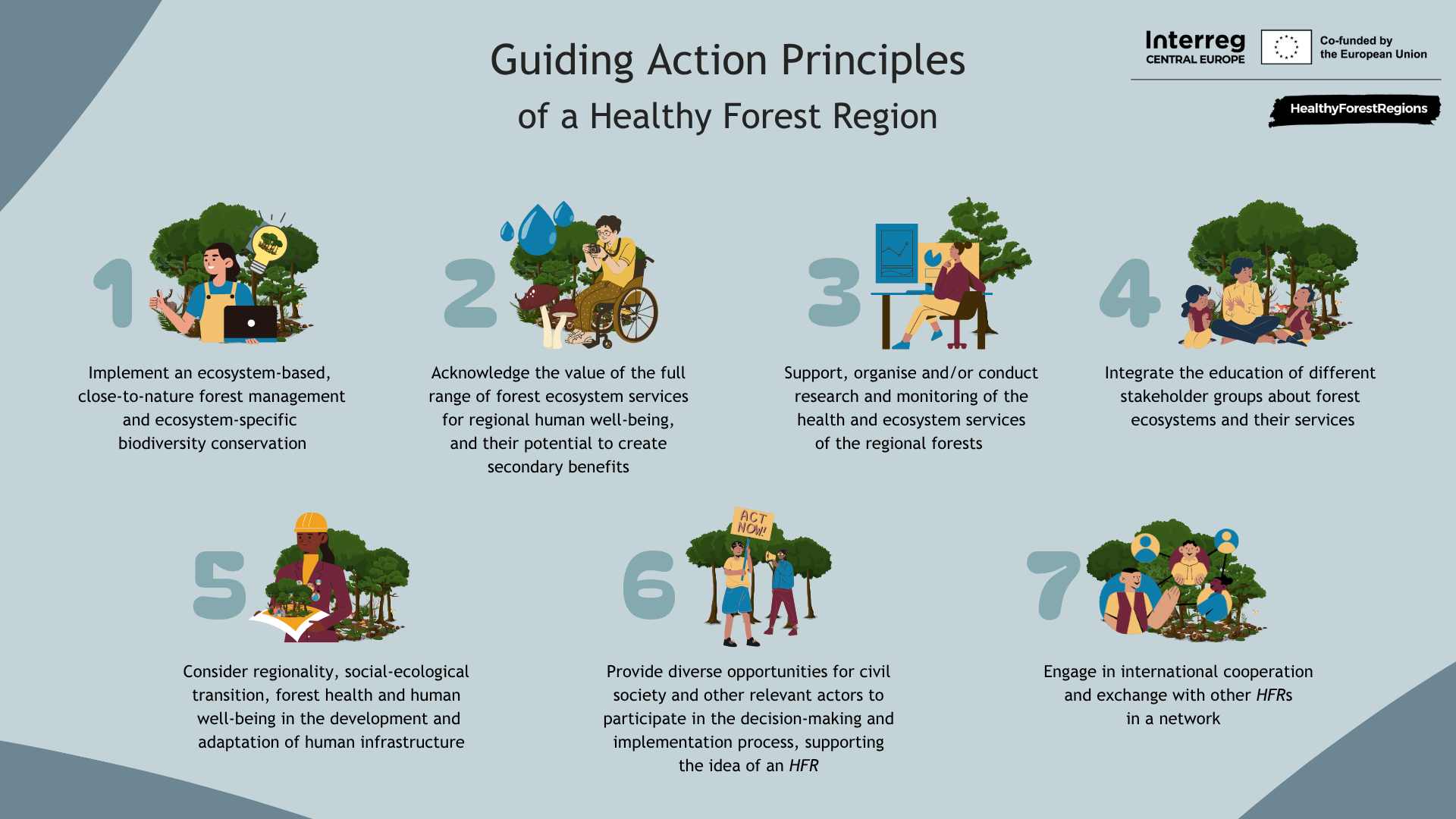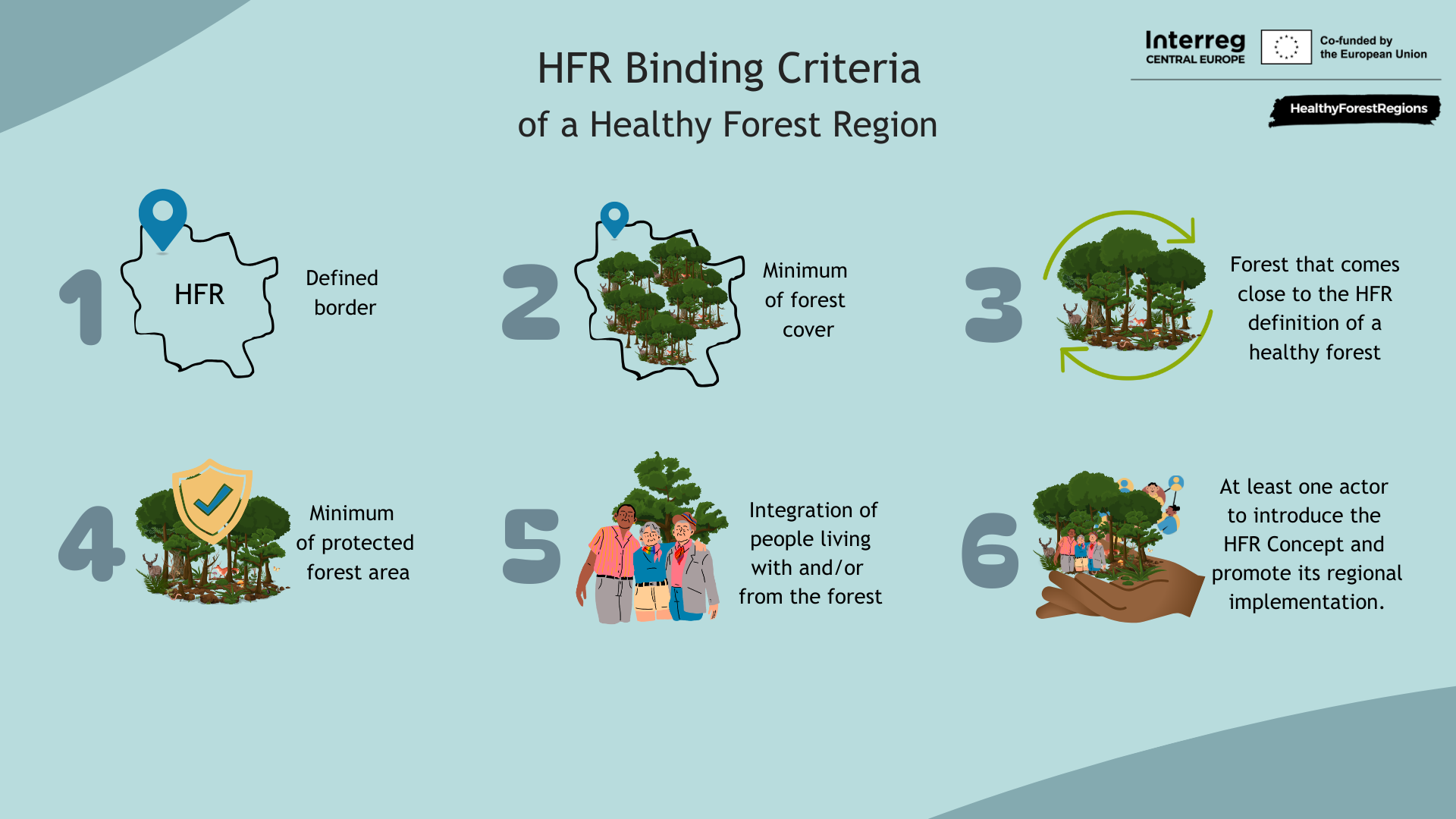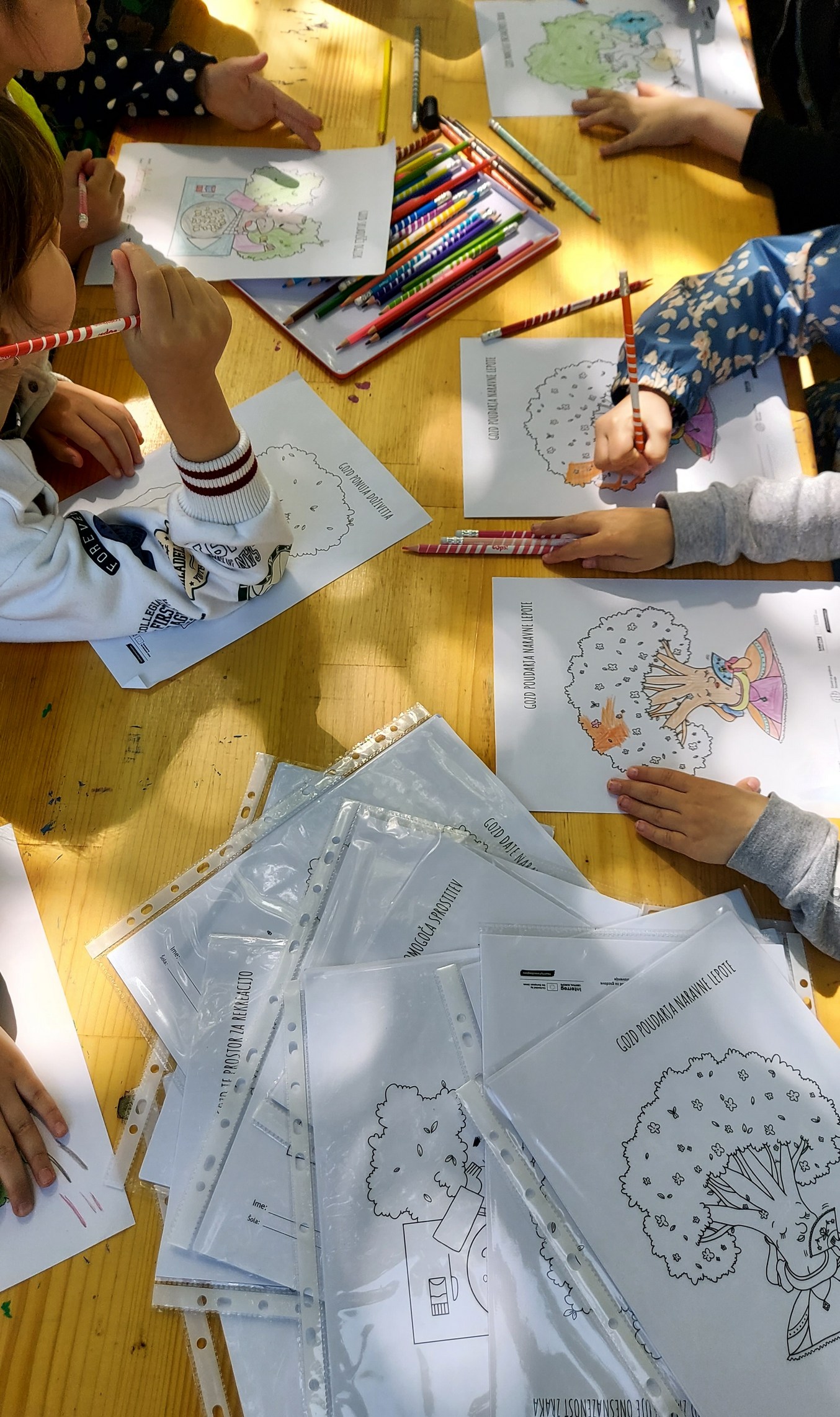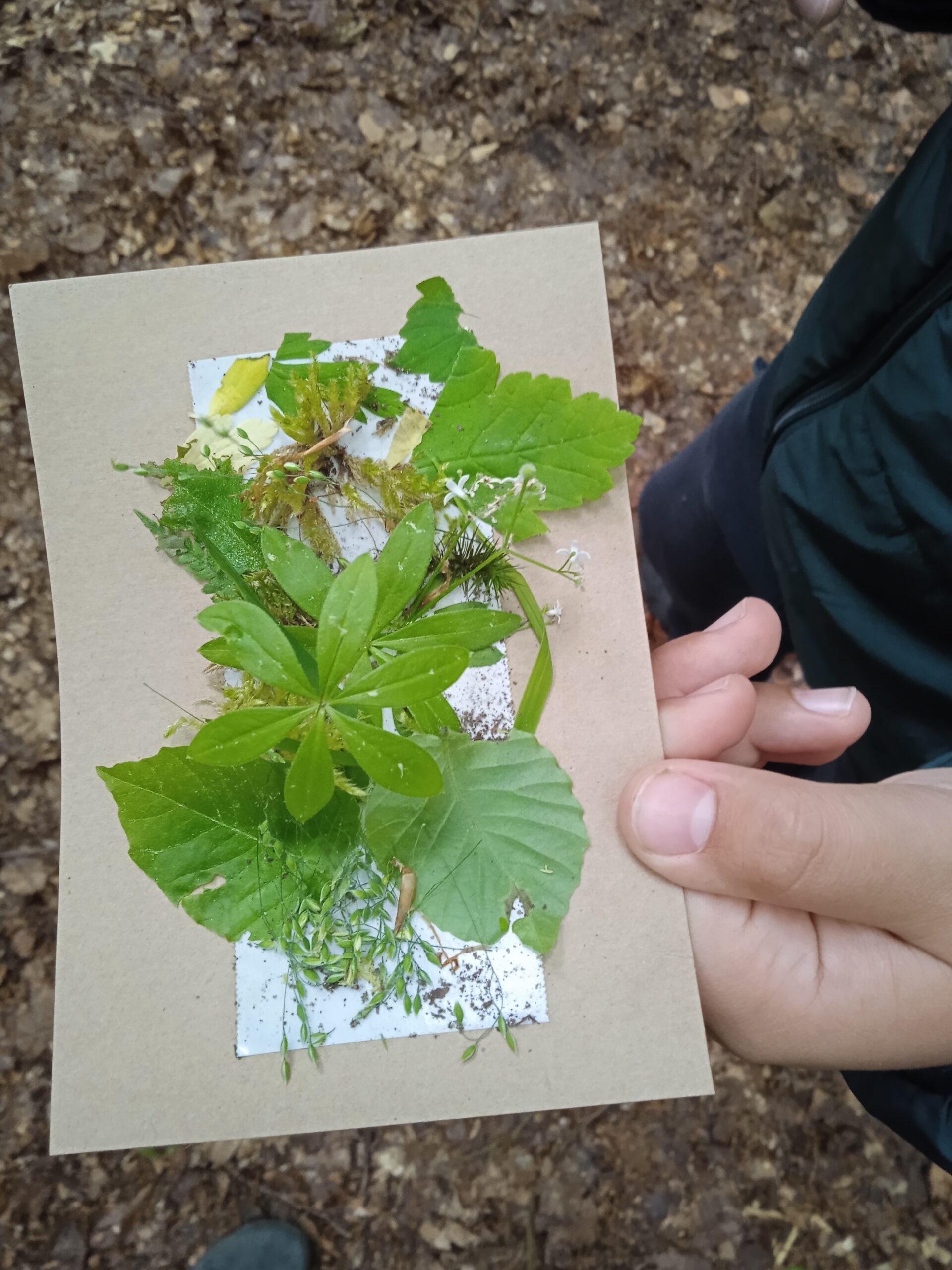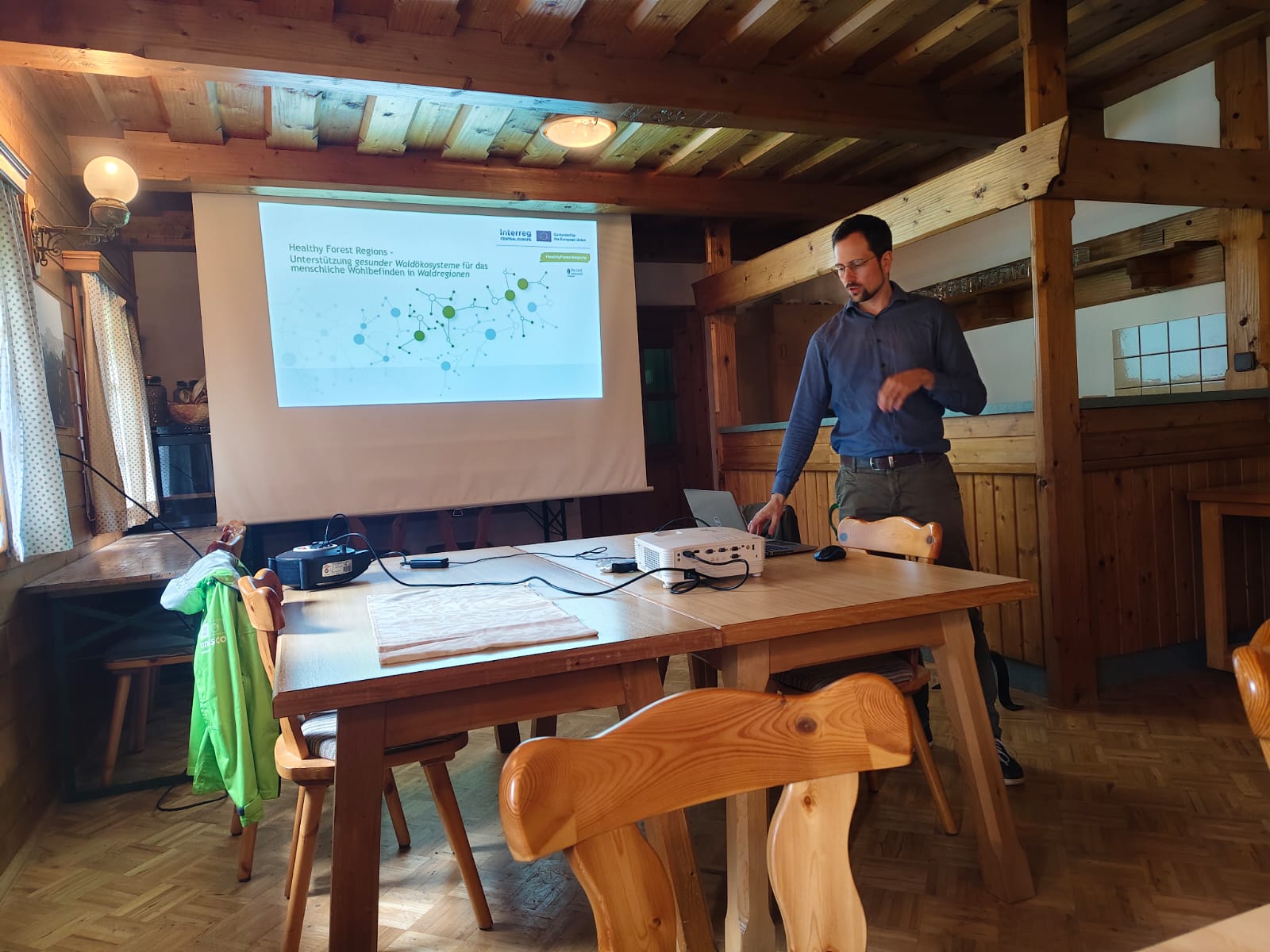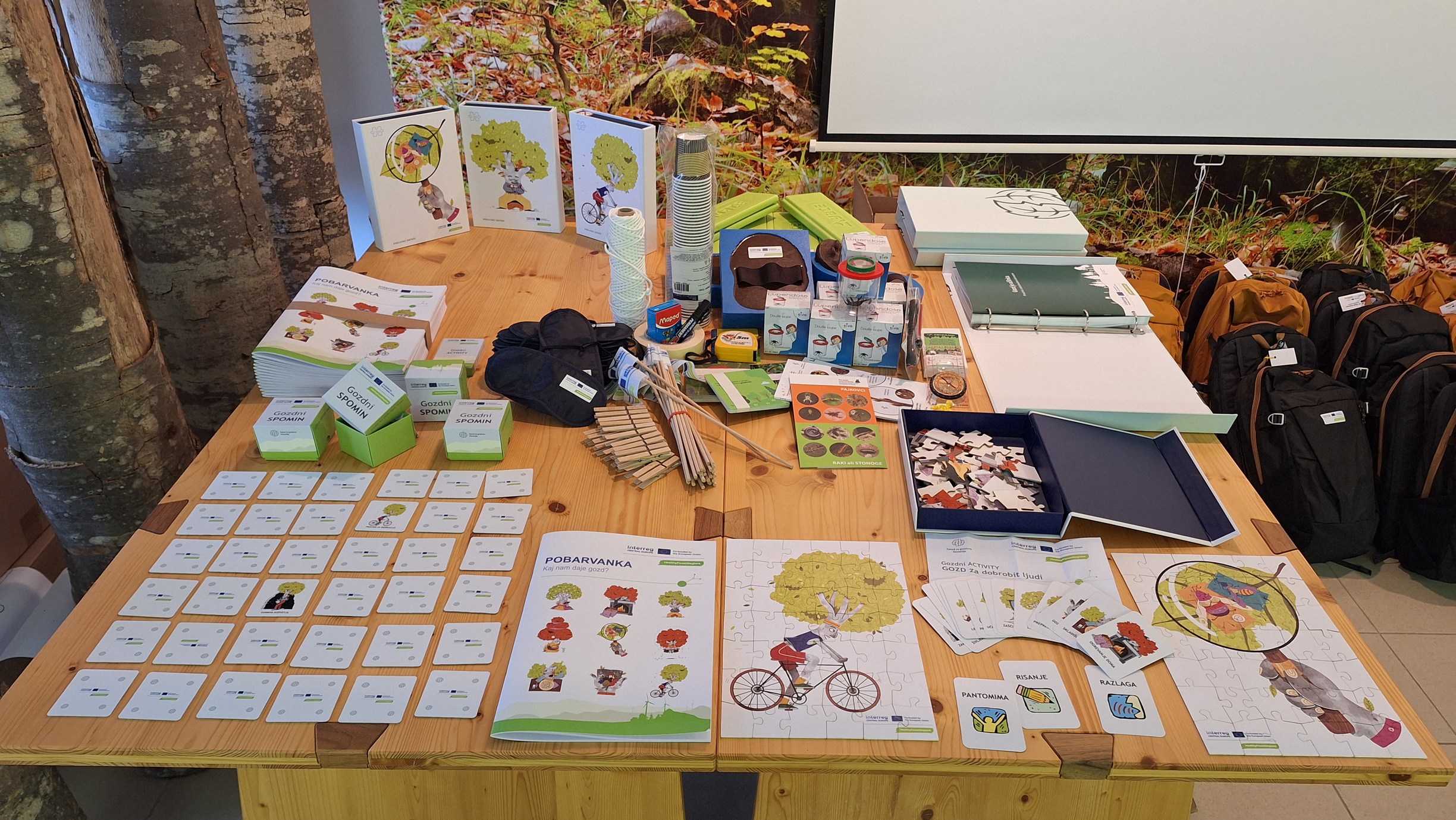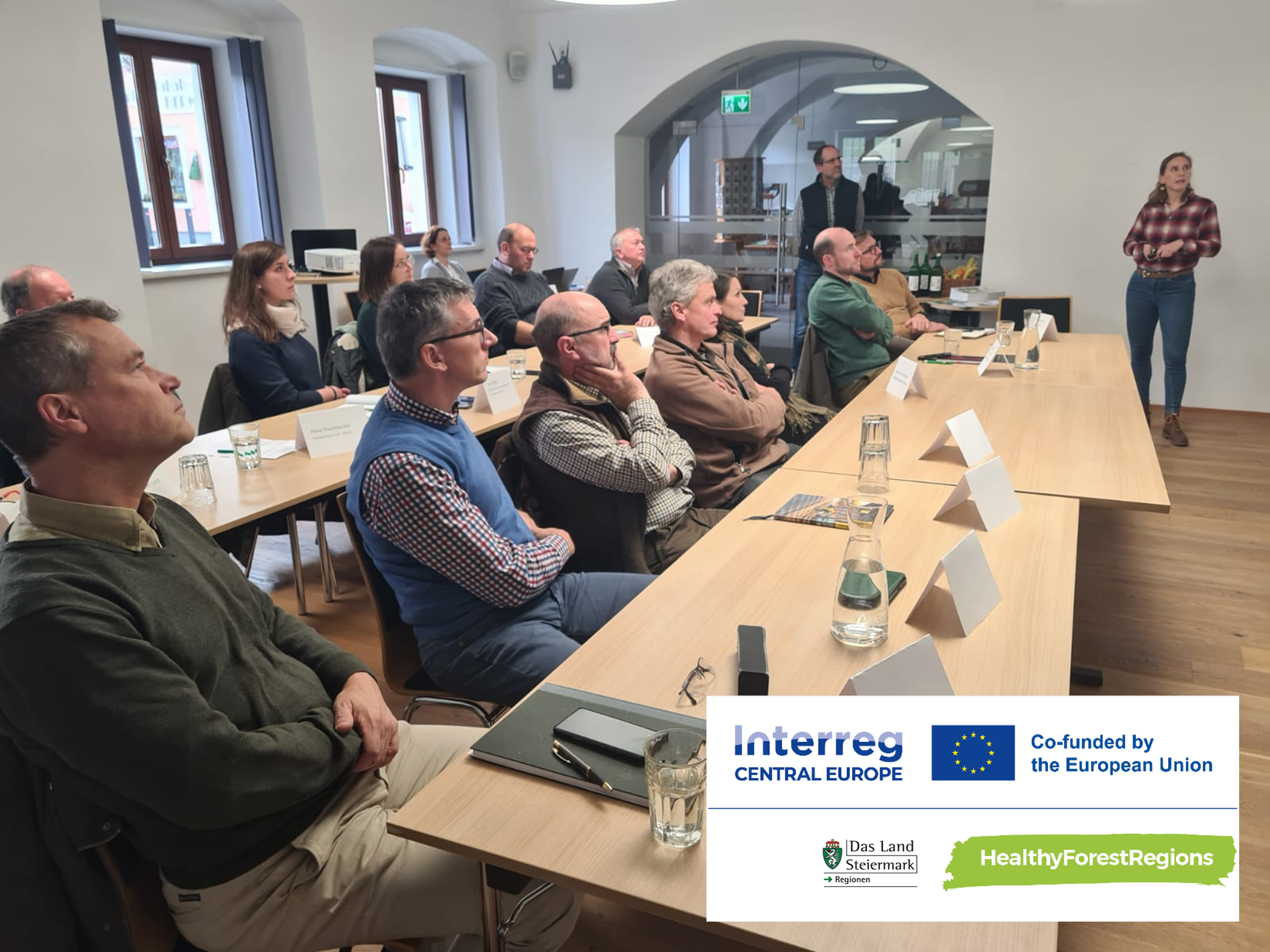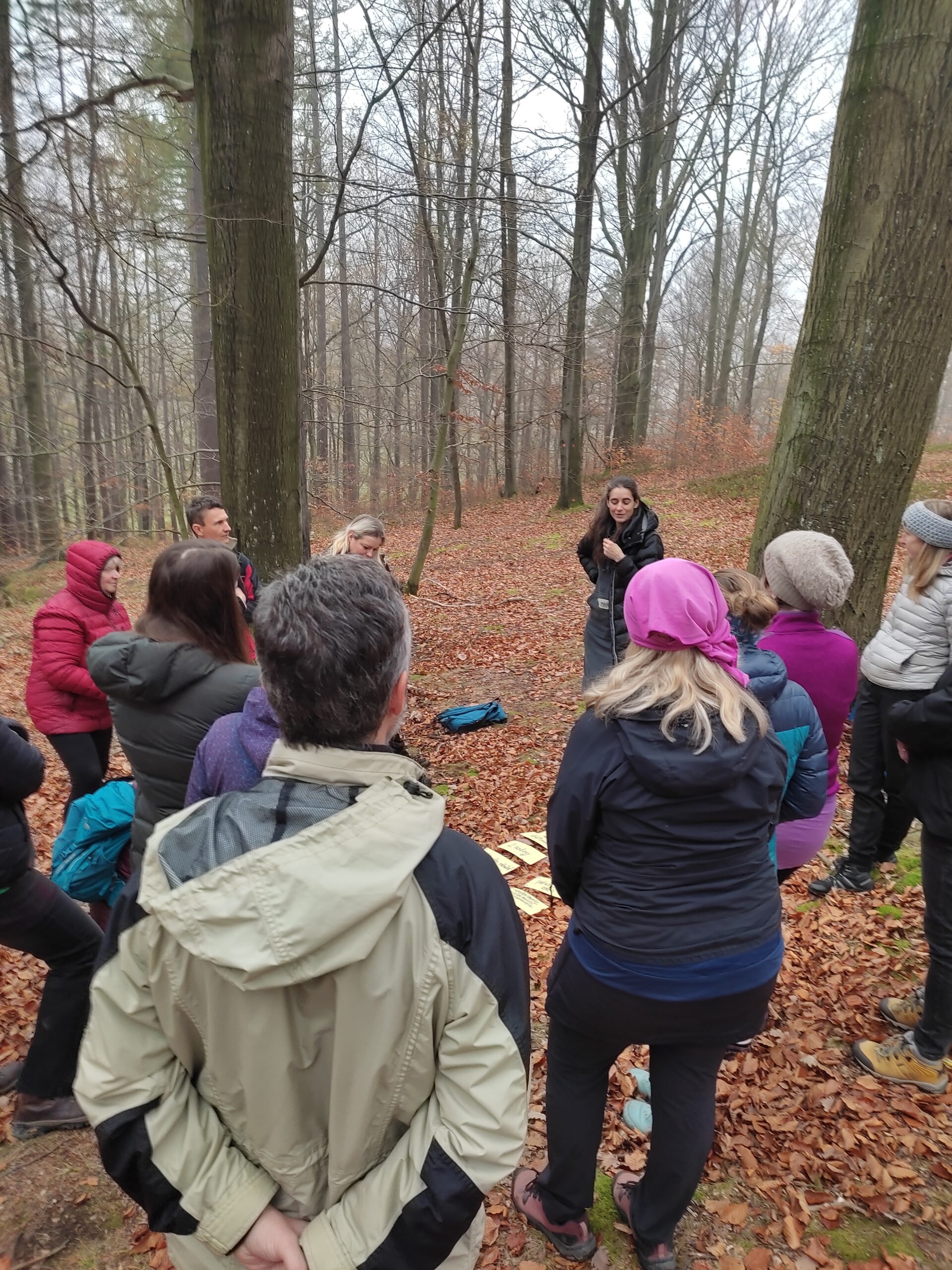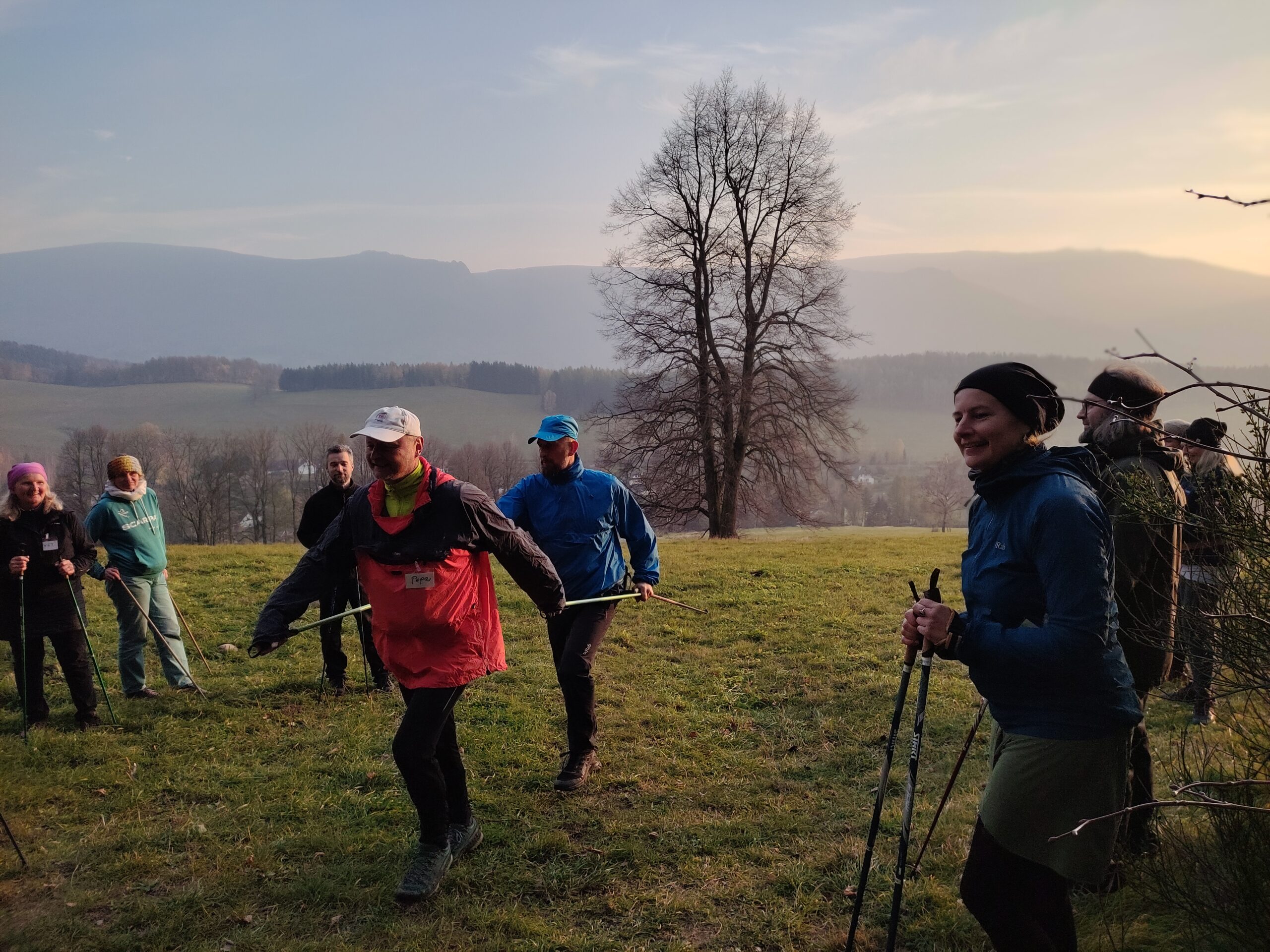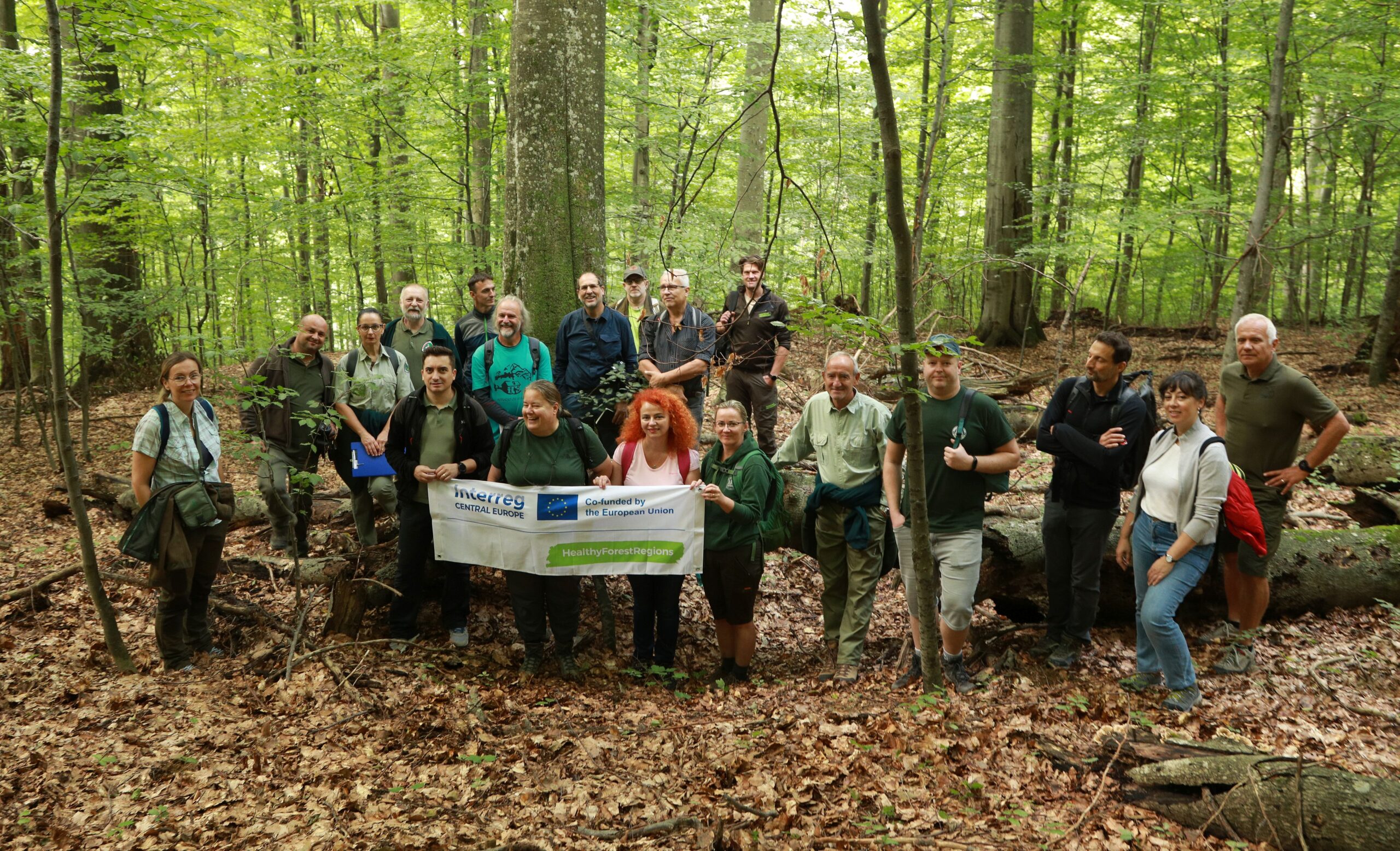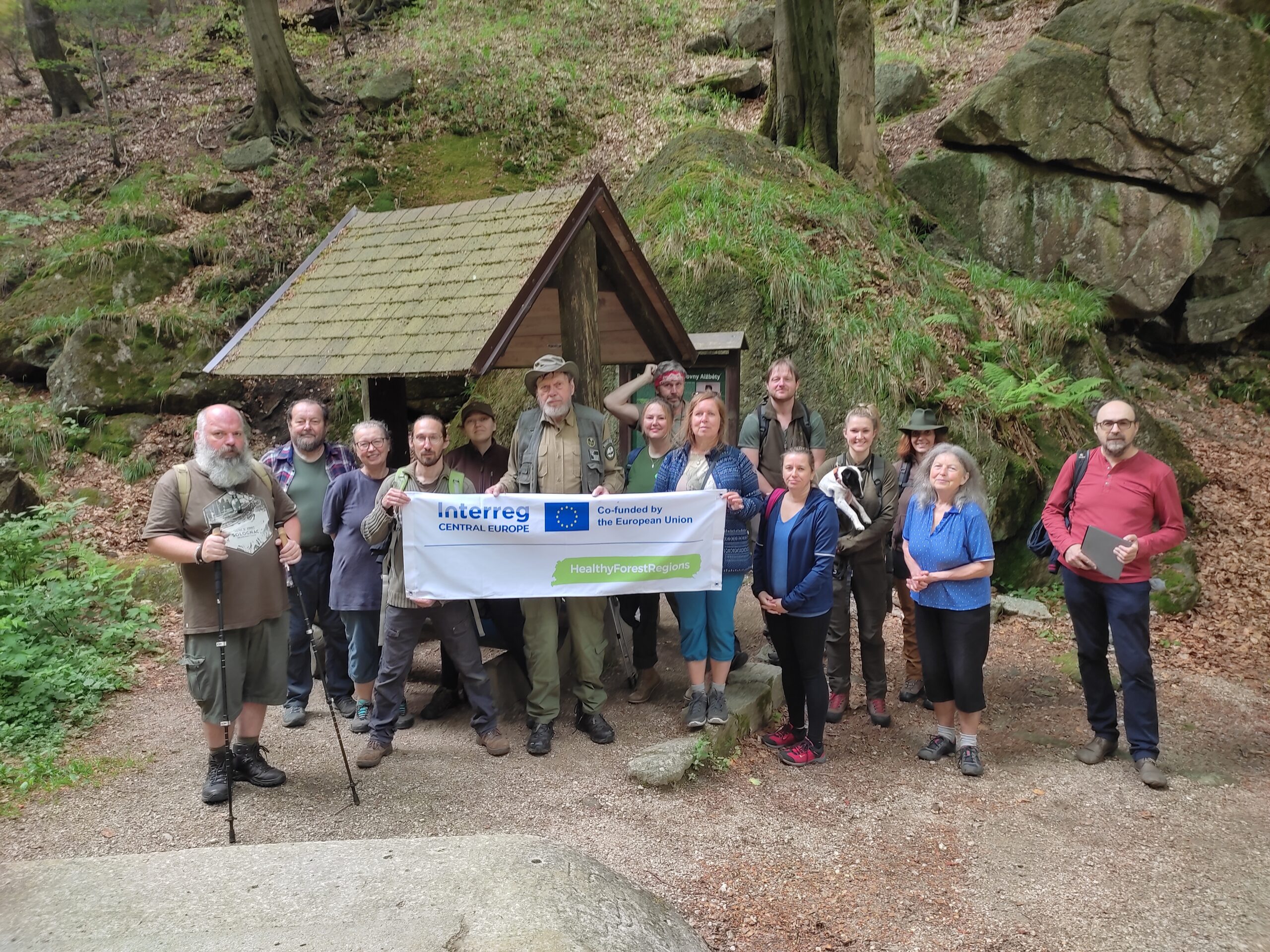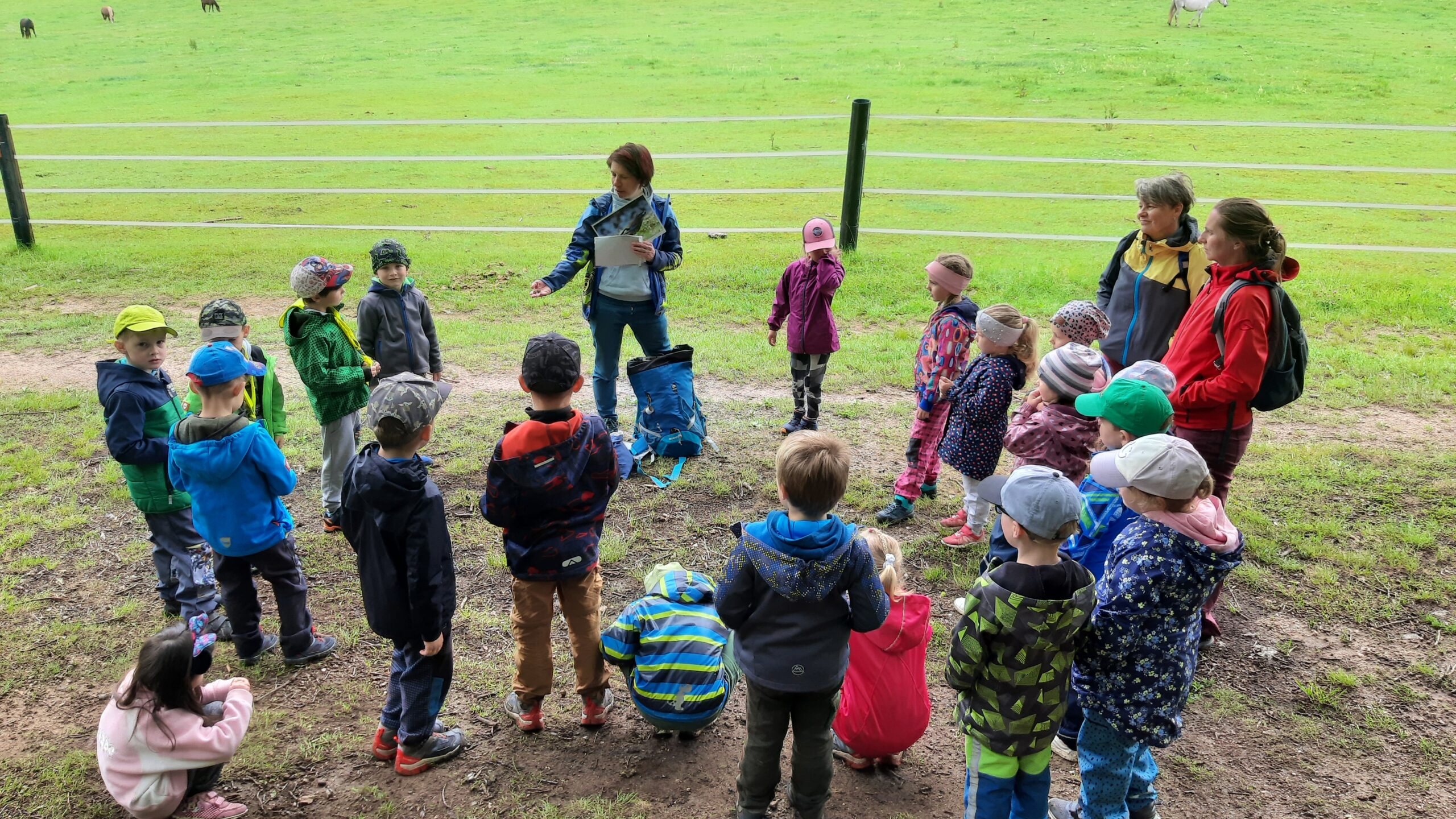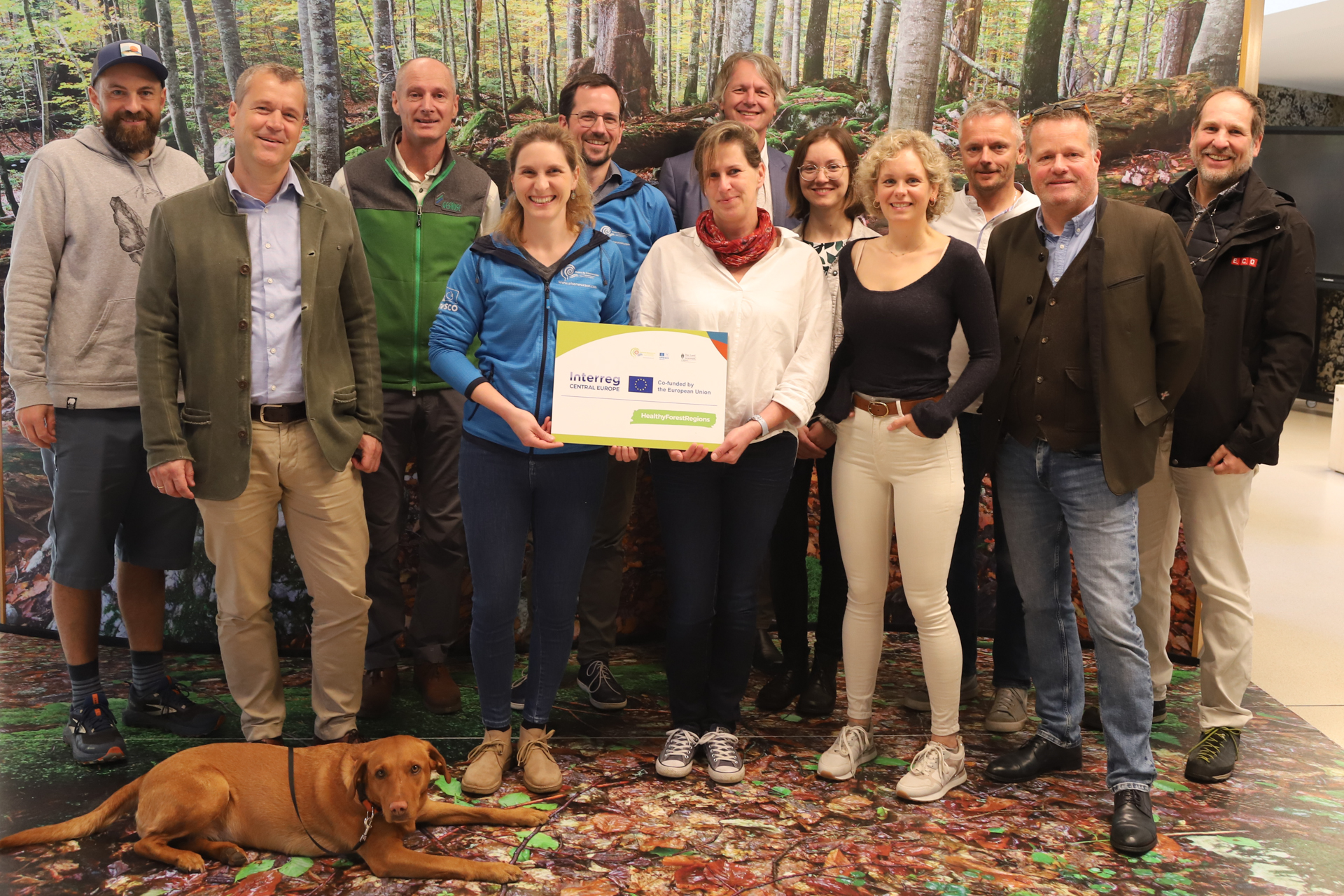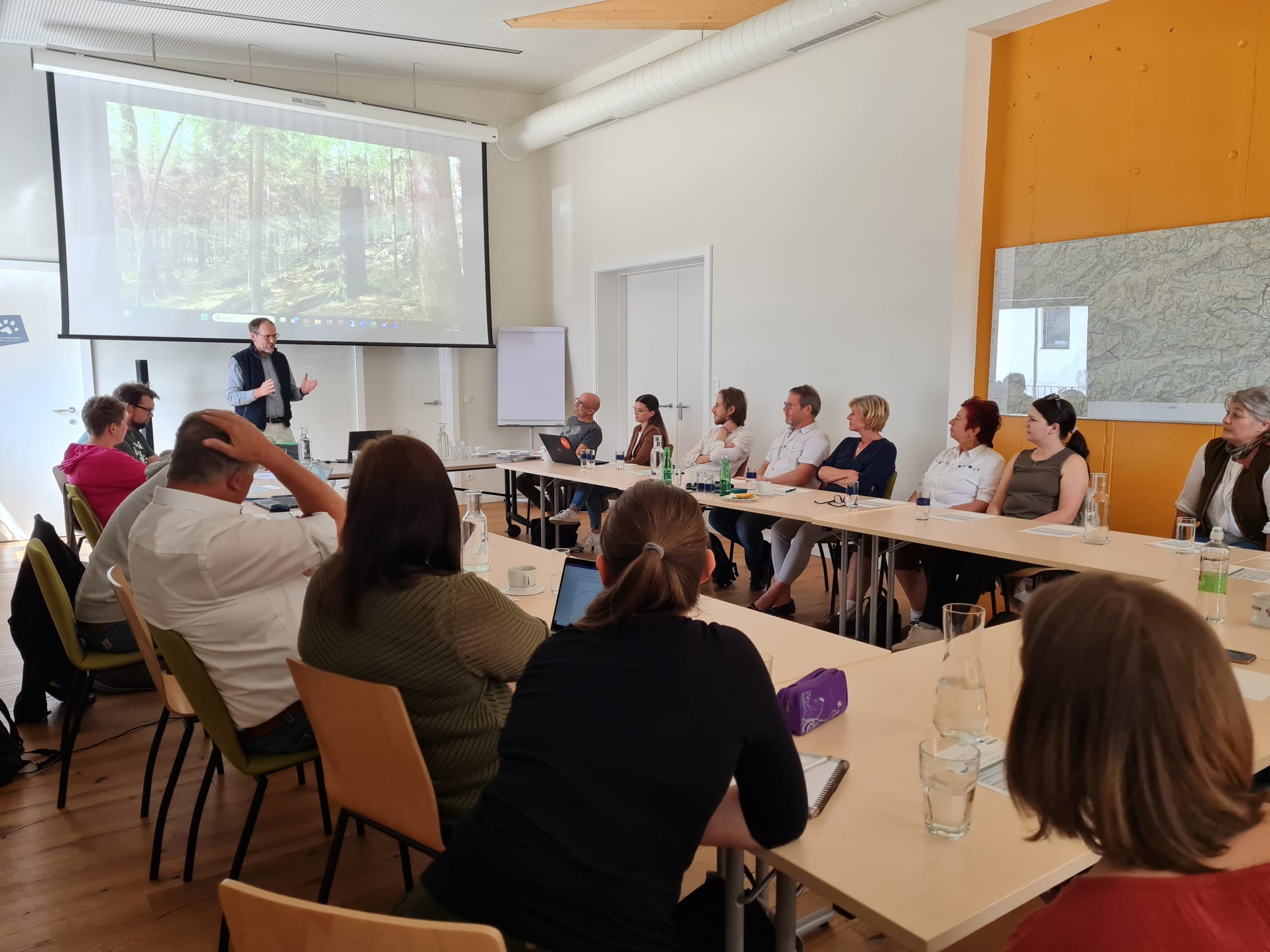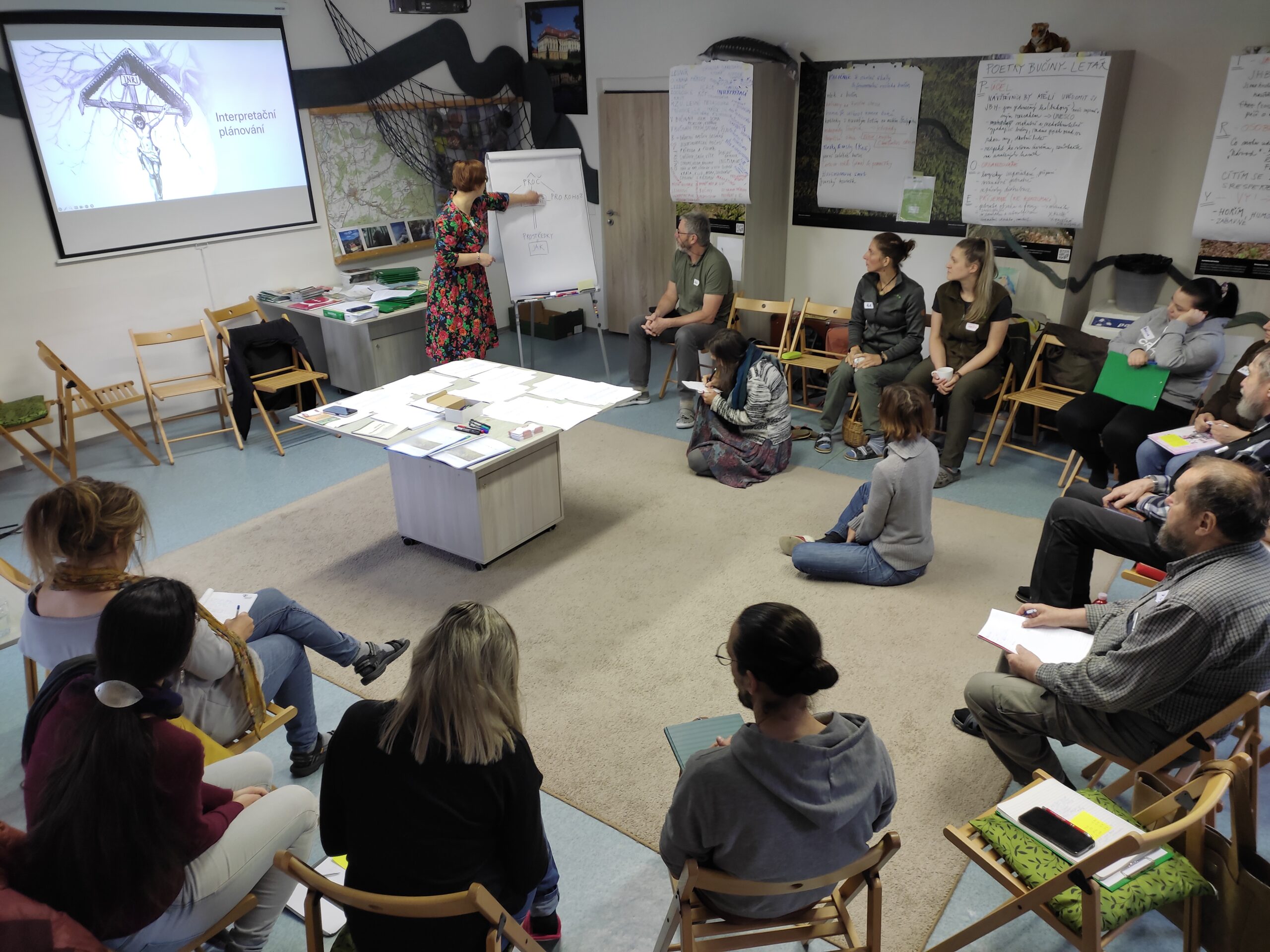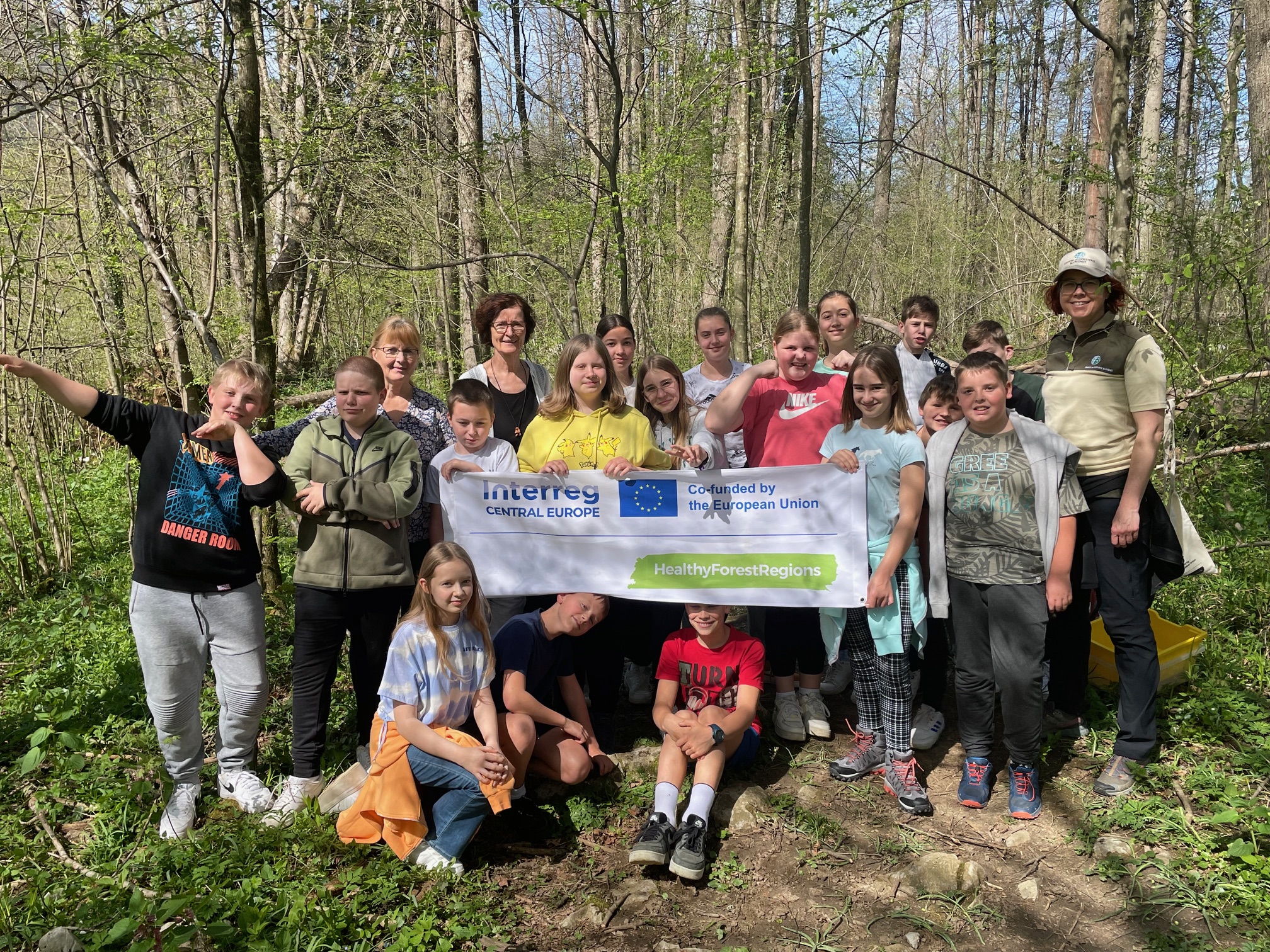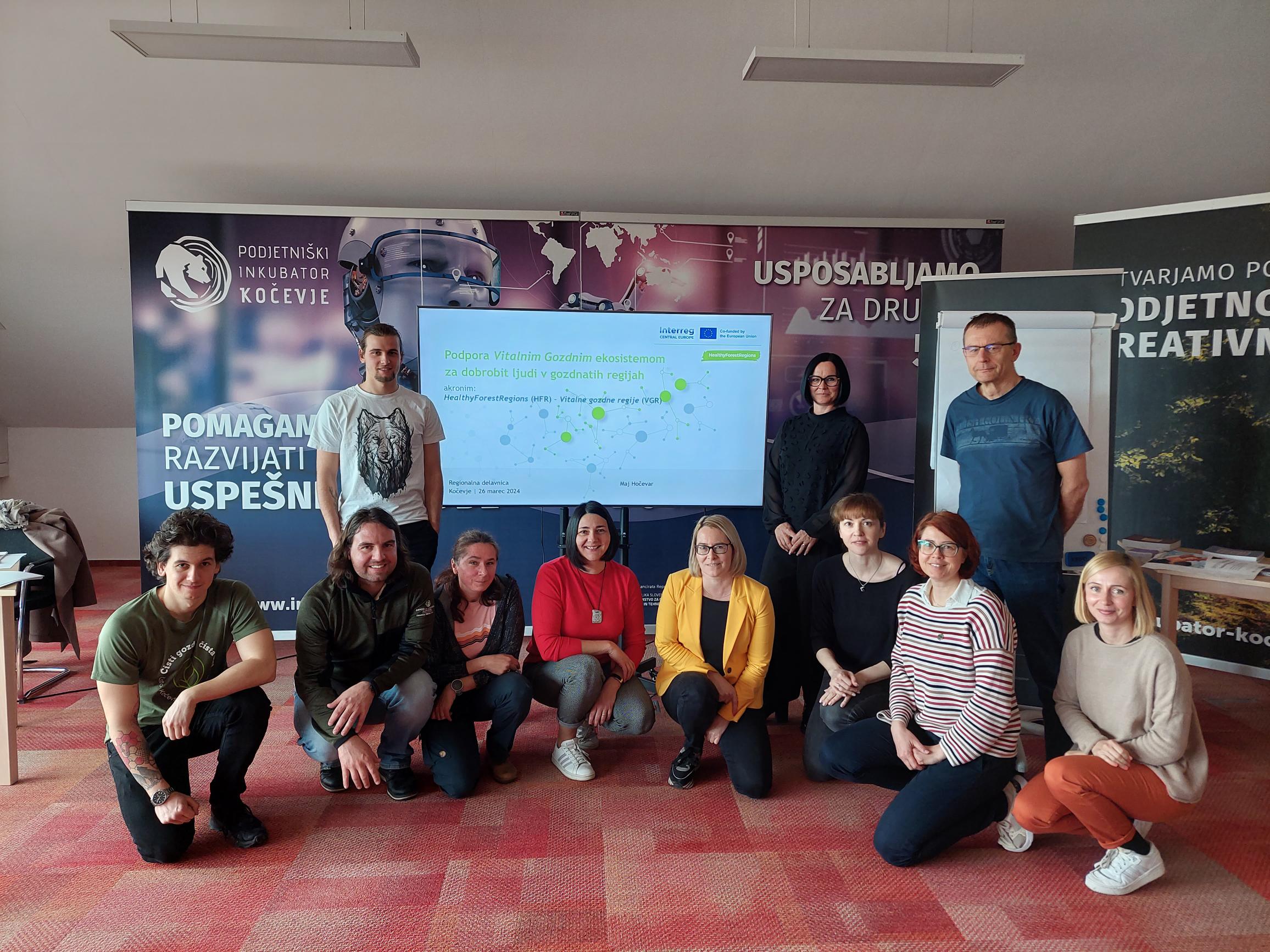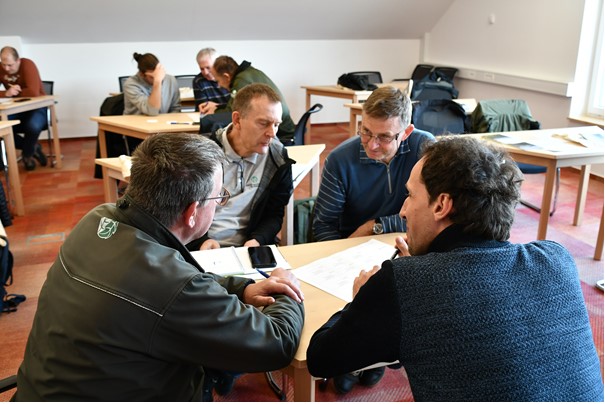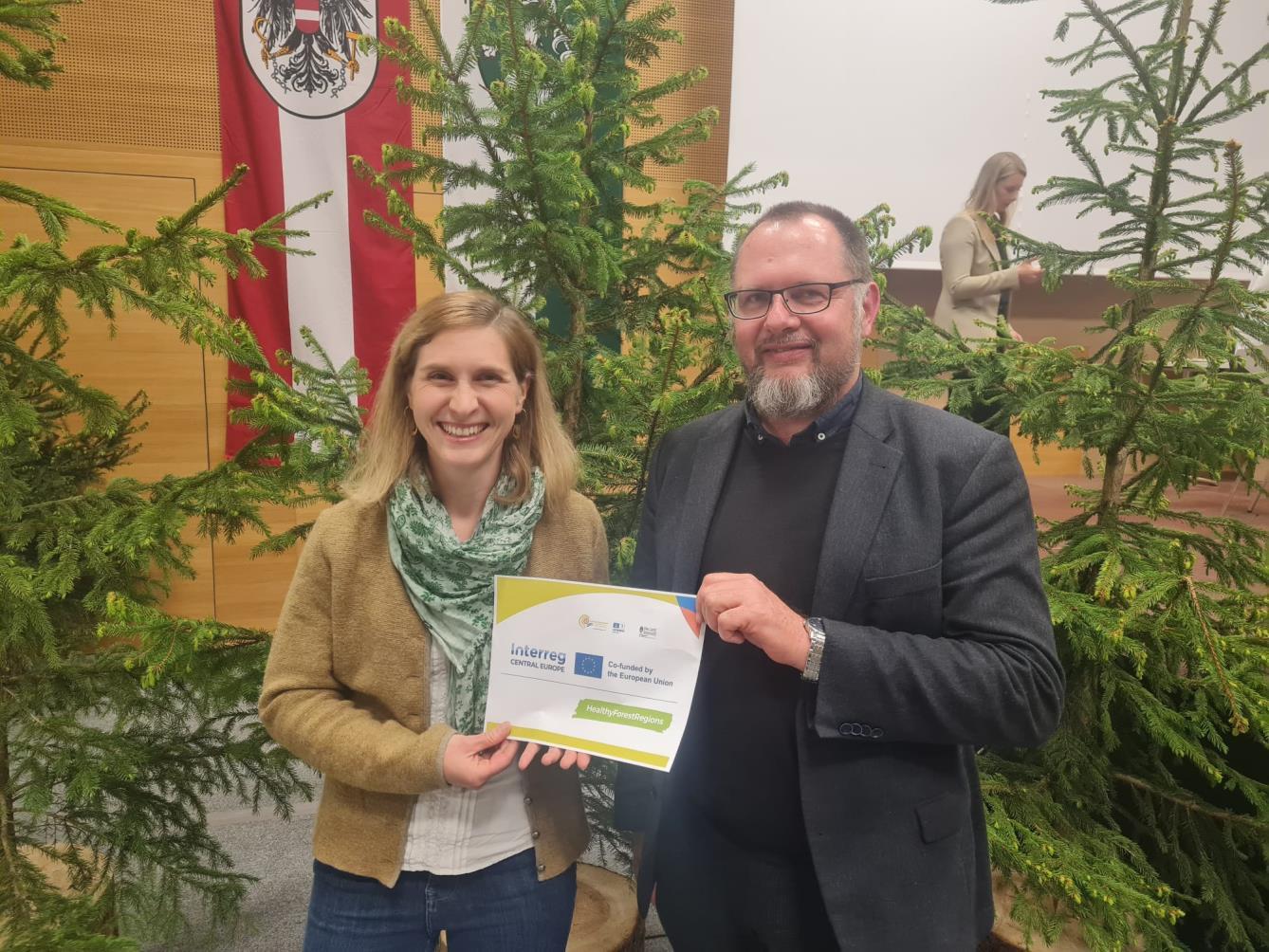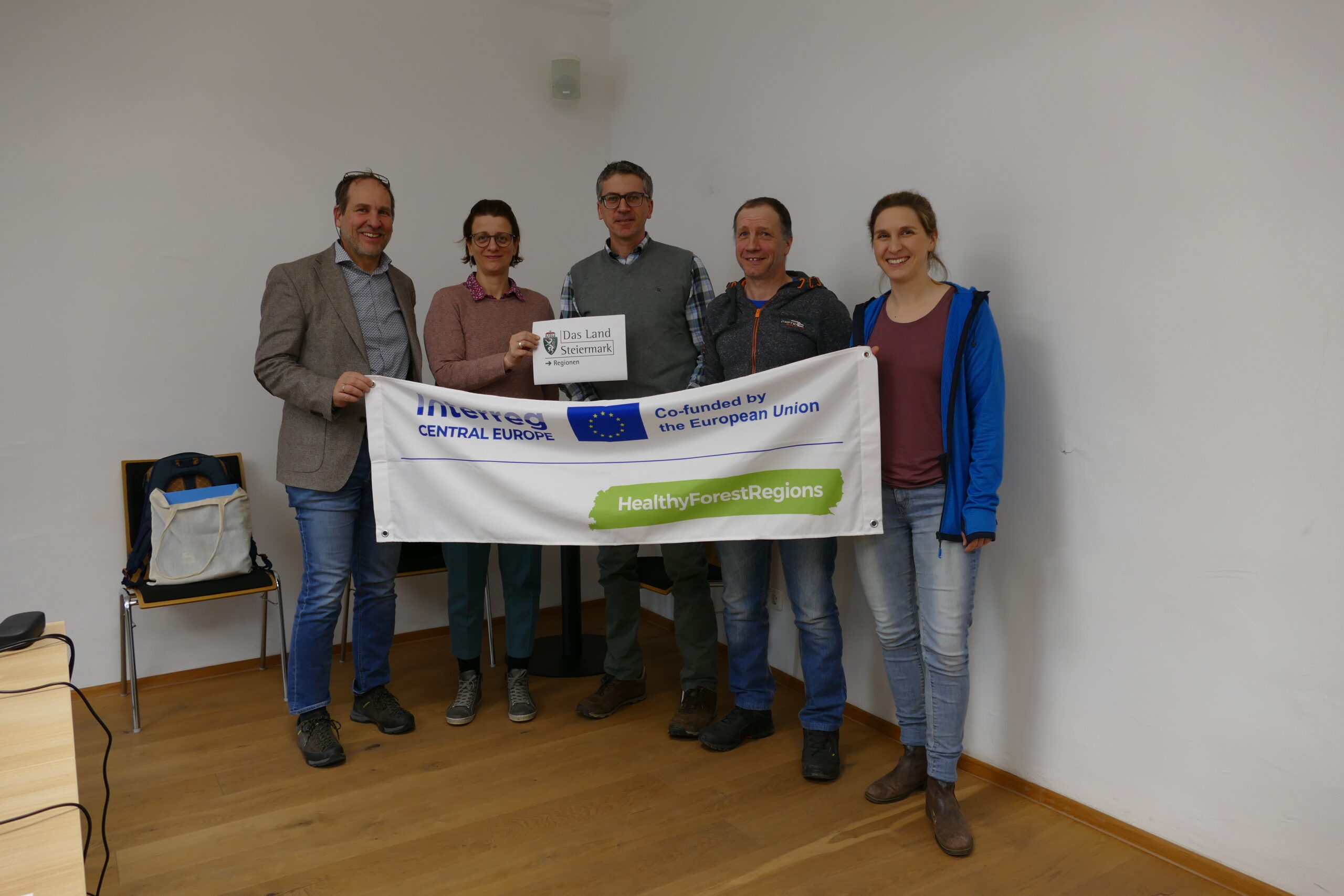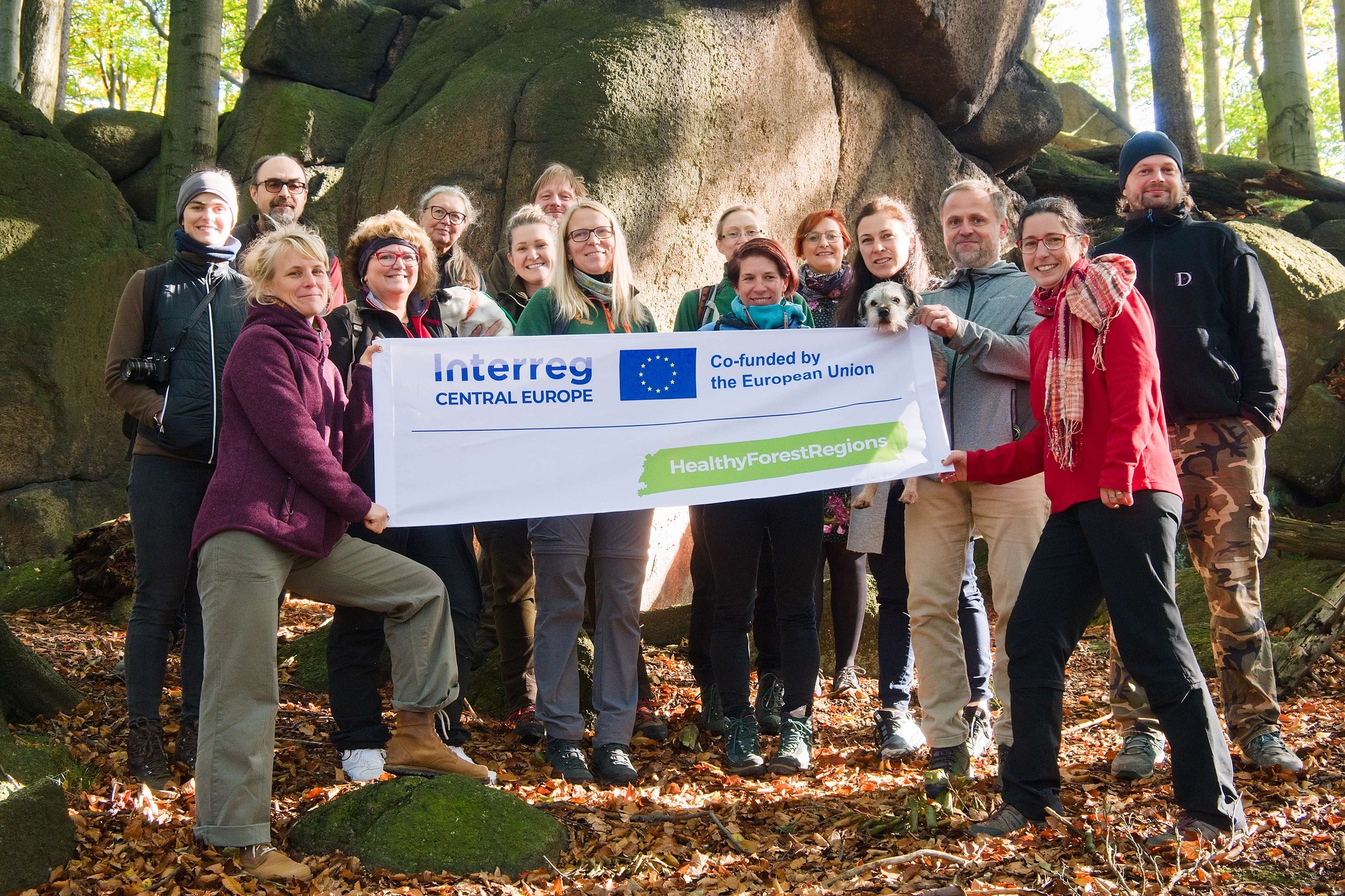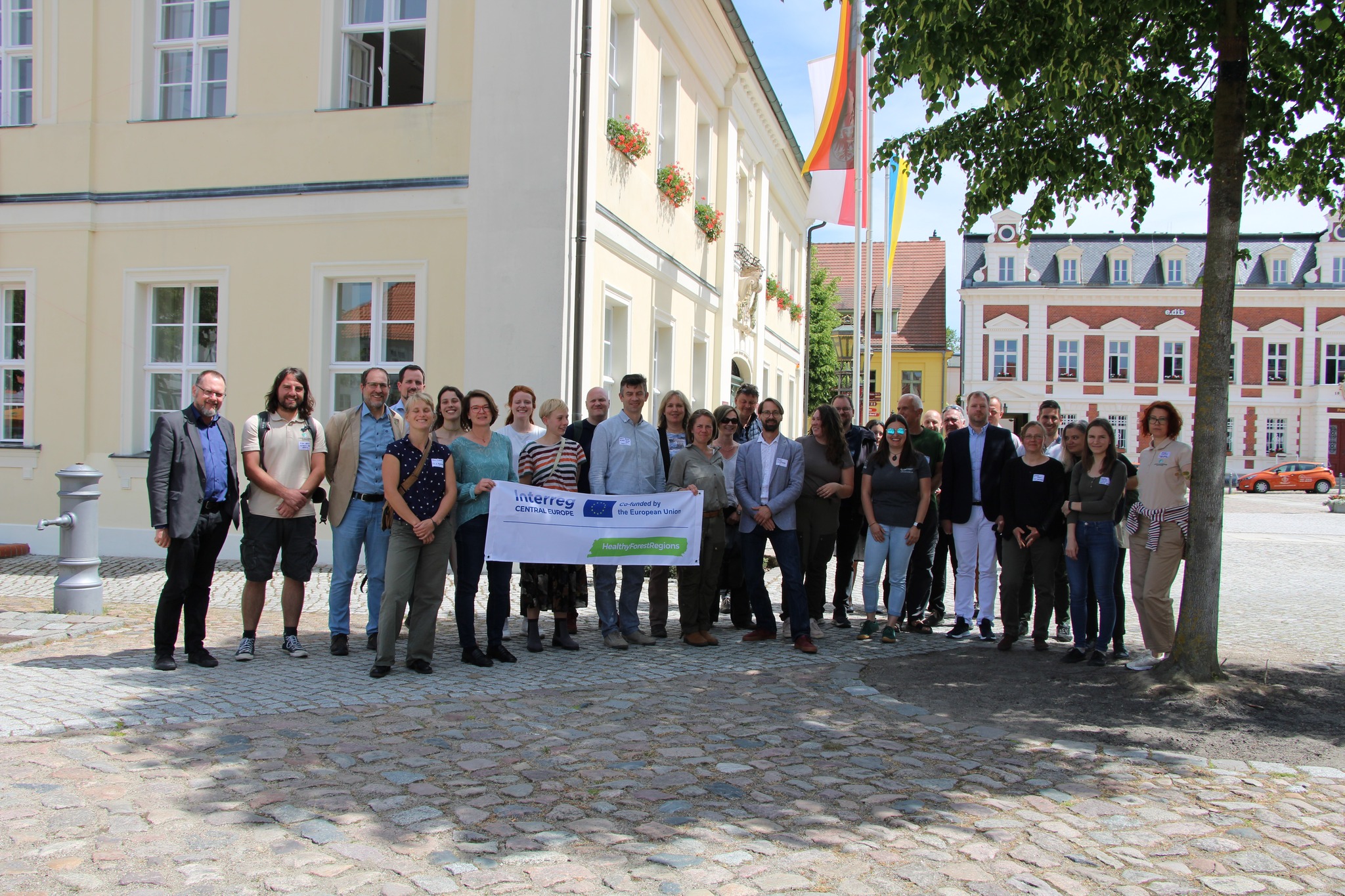Project overview
Healthy Forest Regions: Supporting Healthy Forest ecosystems for human well-being in forest Regions
Can there be healthy people without healthy forests? Without fresh air, clean water, climate regulation, biodiversity, and natural recreation places? The answer is “No”. What we need now is commitment. The HealthyForestRegions project aims at paving the way for regional inhabitants, actors and decision-makers to secure the remaining healthy forests and support the recovery of those jeopardized by human impact.
-
2,78m €
-
Project Budget
-
80%
-
of the Budget is funded by ERDF
-
6
-
Countries
-
8
-
Regions
-
9
-
Partners
-
7
-
Pilots
Duration
Start date
End date
Project progress
About the project
The main goal of the HealthyForestRegions (HFR) Project is the preservation and encouragement of healthy forest ecosystems in Central Europe to secure human well-being - now and in the future.
The key actors to put that objective into practice are the policy- and decision-makers in certain forested regions. They are the people who have the opportunity and power to make a change. Thus, they are the once we aim to offer well-founded explanations and feasible solutions. Therefore, we brought to life a transnational project team with widely spread competences: 2 universities, 2 municipalities, 2 national forest services, 2 nature parks and 1 NGO. In close exchange and cooperation, the project partners work together on three different topics fields to achieve the project goal:
The first topic field focuses on raising awareness and spreading knowledge about the value of regional forests. It also includes implementing pilot actions to anchor this value among educational institutions, recreation and tourism organizations, and the local population.
In the second work field, a team of project partners focuses on creating alternative income opportunities for local and regional forest owners and managers. These alternatives aim to reduce the need for intensive timber harvesting, which often compromises forest health. Specifically, forest-based schemes of Payments for Ecosystem Services (PES) are being analyzed and developed.
The third topic field aims to enable regional policymakers and decision-makers to assess the health of local forests. It also examines how regional regulations and structures impact forest conditions. Based on these findings, measures to maintain and support forest health are developed into a general strategy and a transferable HFR concept.
Project partnership
Project partners

Lead partner
Eberswalde University for Sustainable Development
Faculty of Forest and Environment, Centre for Econics and Ecosystem Management, Centre for Econics and Ecosystem Management
16225 Eberswalde
Project partner
Faculty of Forestry and Wood Sciences (FFWS)
1330 Kočevje
Roadmap
What is the project about?

The HealthyForestRegions Project connects 9 Central European partner organizations in 6 different forested European regions to jointly work on the conservation and recovery of regional forests.
What are the problems the project addresses?
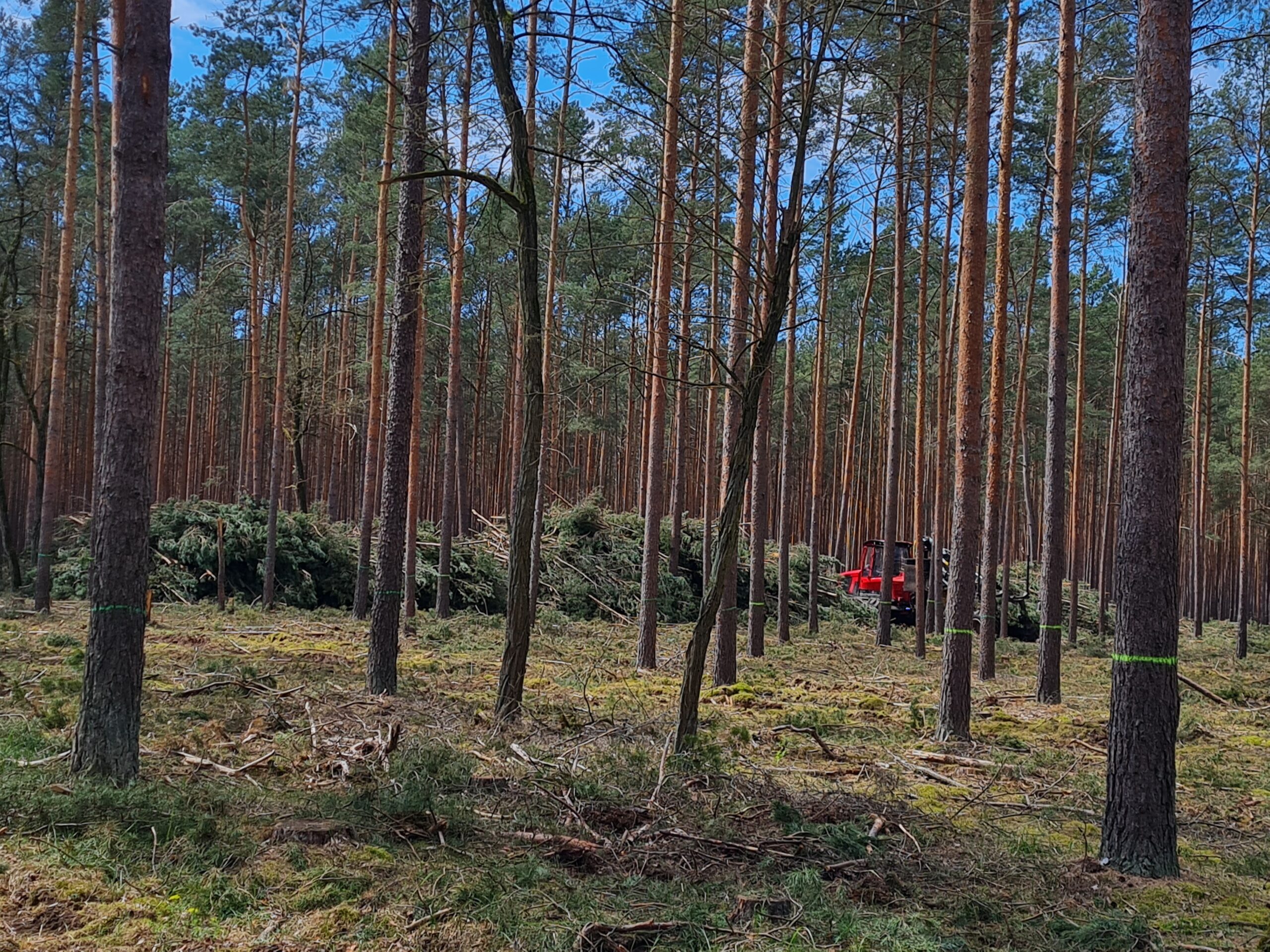
Human well-being is deeply connected to the health of regional forests, but their continued existence is jeopardized by intensive forest management practices and timber production, as well as by changing environmental conditions.
The key question...

In order to remain and become healthy, forests need socio-ecological and political conditions that allow them to develop their powers of self-regulation and self-preservation. Thus, the key question is: How can we ensure such conditions?
What is the solution we develop?
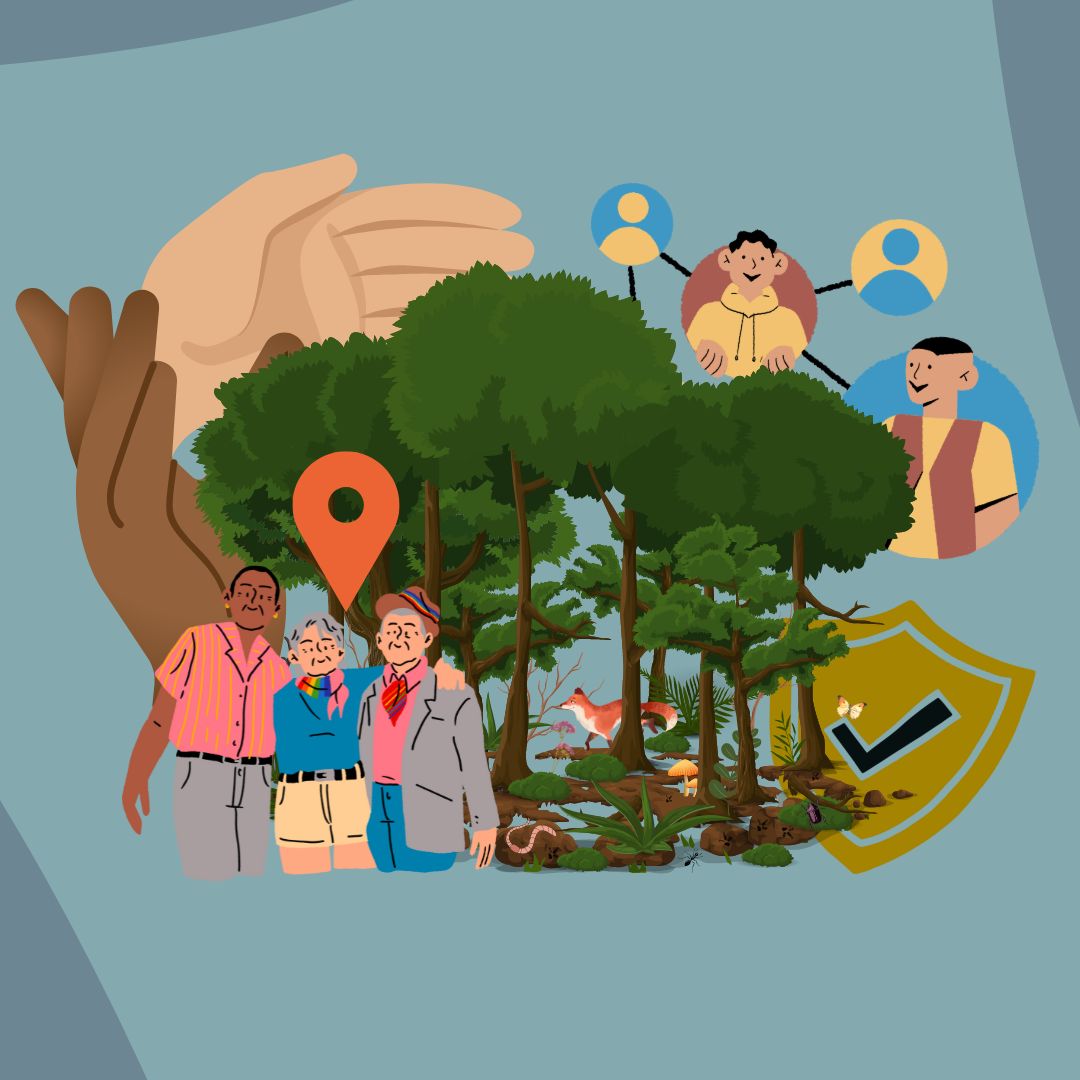
To ensure conditions that help forests to self-regulate and regenerate, the HFR Project addresses and supports the people who are in power of influencing those conditions: the regional policy- and decision makers.
What are important steps to reach our objective?

UNDERSTANDING what healthy forests are and what conditions are needed to support them
ADDRESSING the local people and children with diverse forest education and experience offers
DEVELOPING strategies and action plans to become a region with healthy forests that support the well-being of people working, living, and spending their time there
OFFERING alternatives for people who economically depend on timber production
CREATING commitment among regional political and decision-makers to secure the continued existence and recovery of healthy forests.
What impact have we already had?

So far, we already see the first fruits of our work: a program for kindergarten children has been implemented, human benefits created by forest ecosystems have been widely analyzed and prioritized, and a web-based tool to determine the health of certain forested regions has been developed. Stay tuned what happens next!
What you can do
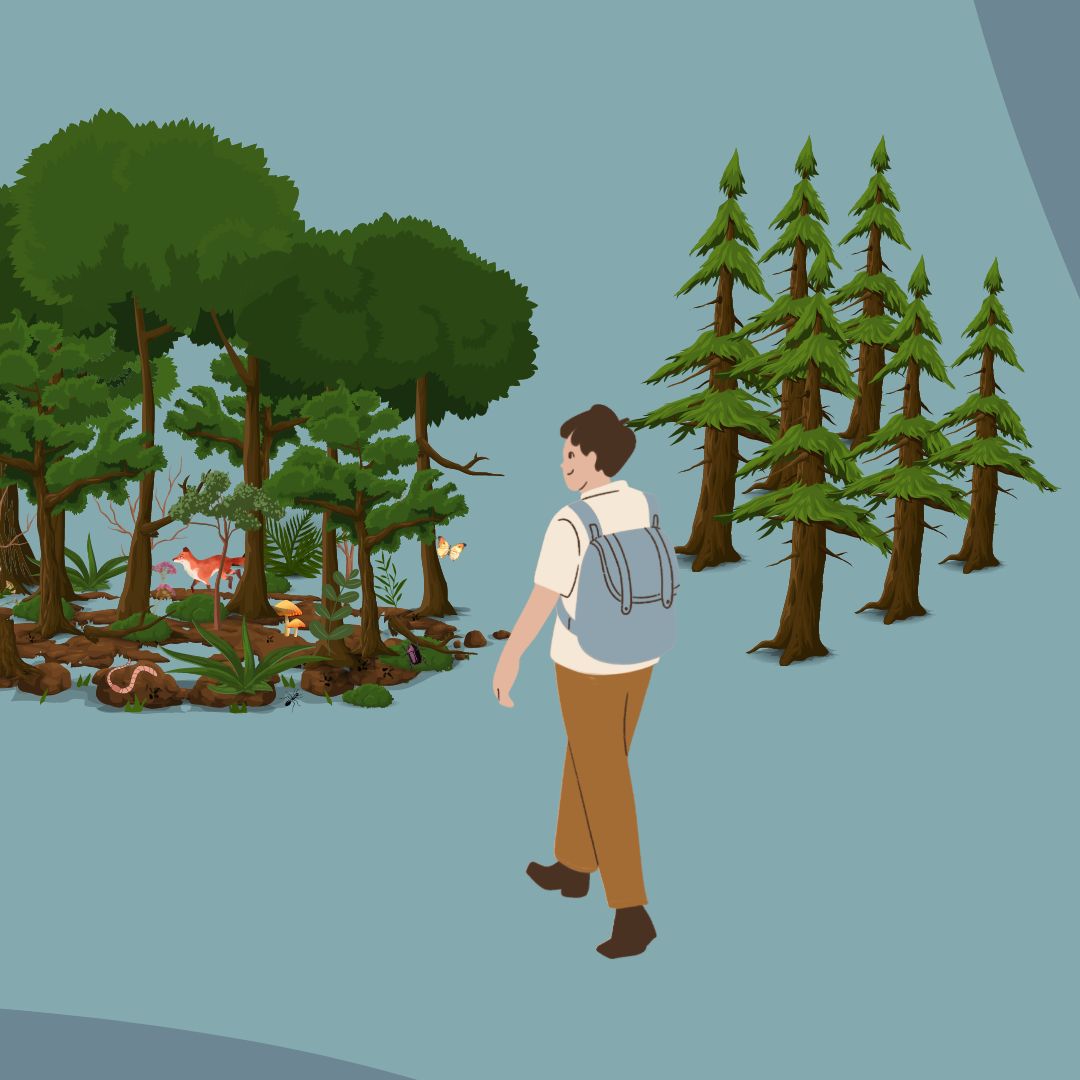
Subscribe to our Facebook and LinkedIn pages to keep track of the steps and challenges we face in realizing our vision of a network of long-term healthy forest regions within Central Europe!
…And the next time you go into the woods, try to use all your senses to see, feel, smell, taste, and hear the differences between wild and “clean,” old and young, beech and pine forests…
News
Events
Pilot actions
Outputs

Integrating forest ecosystem knowledge into education for health and well-being

Creating regional benefits for local stakeholders
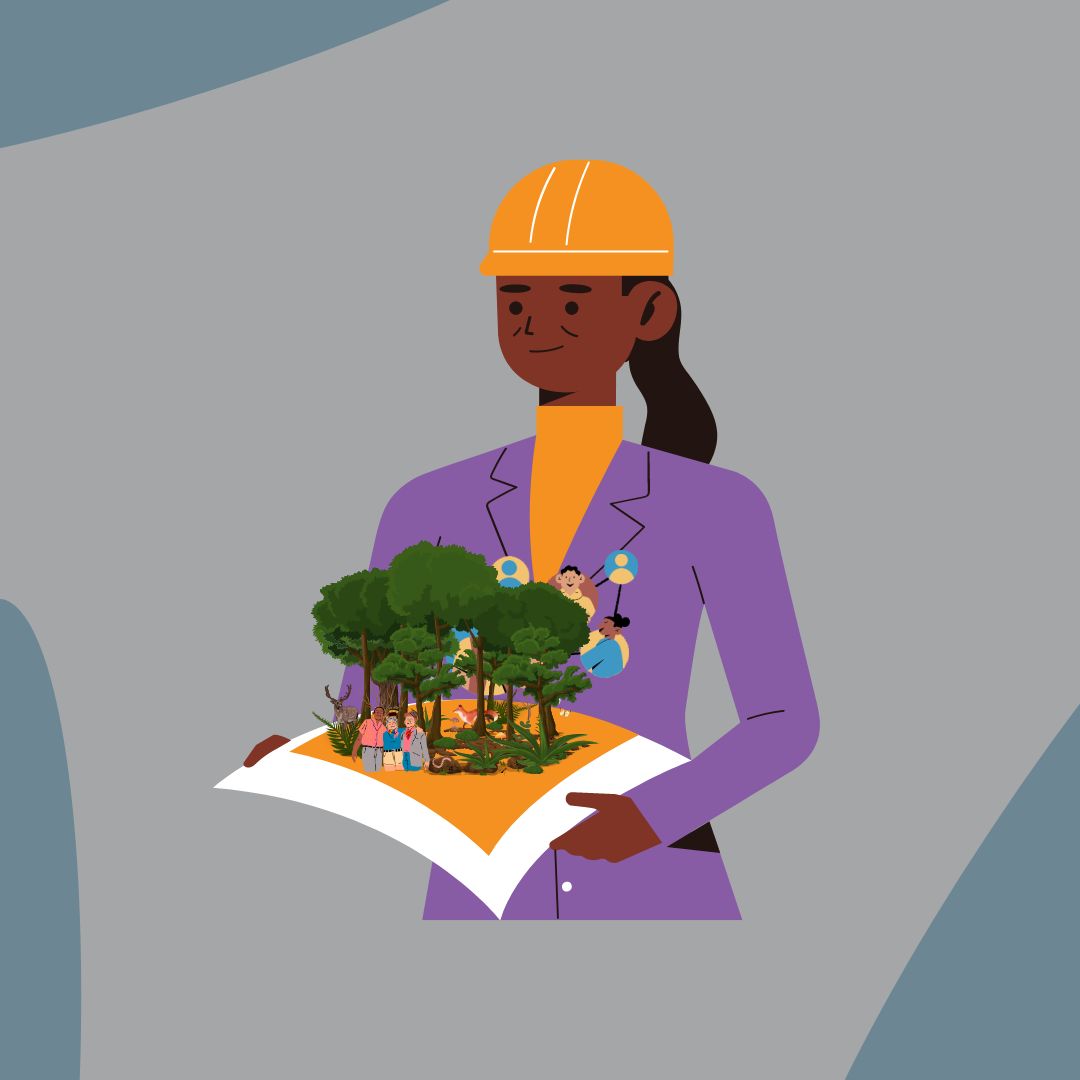
Marketing forest ecosystem services for regional development

Interpretation Plan for Healthy Forest Regions

Regional strategies and action plans for prioritizing ecosystem services

Strategy to maintain and enhance forest health for human well-being
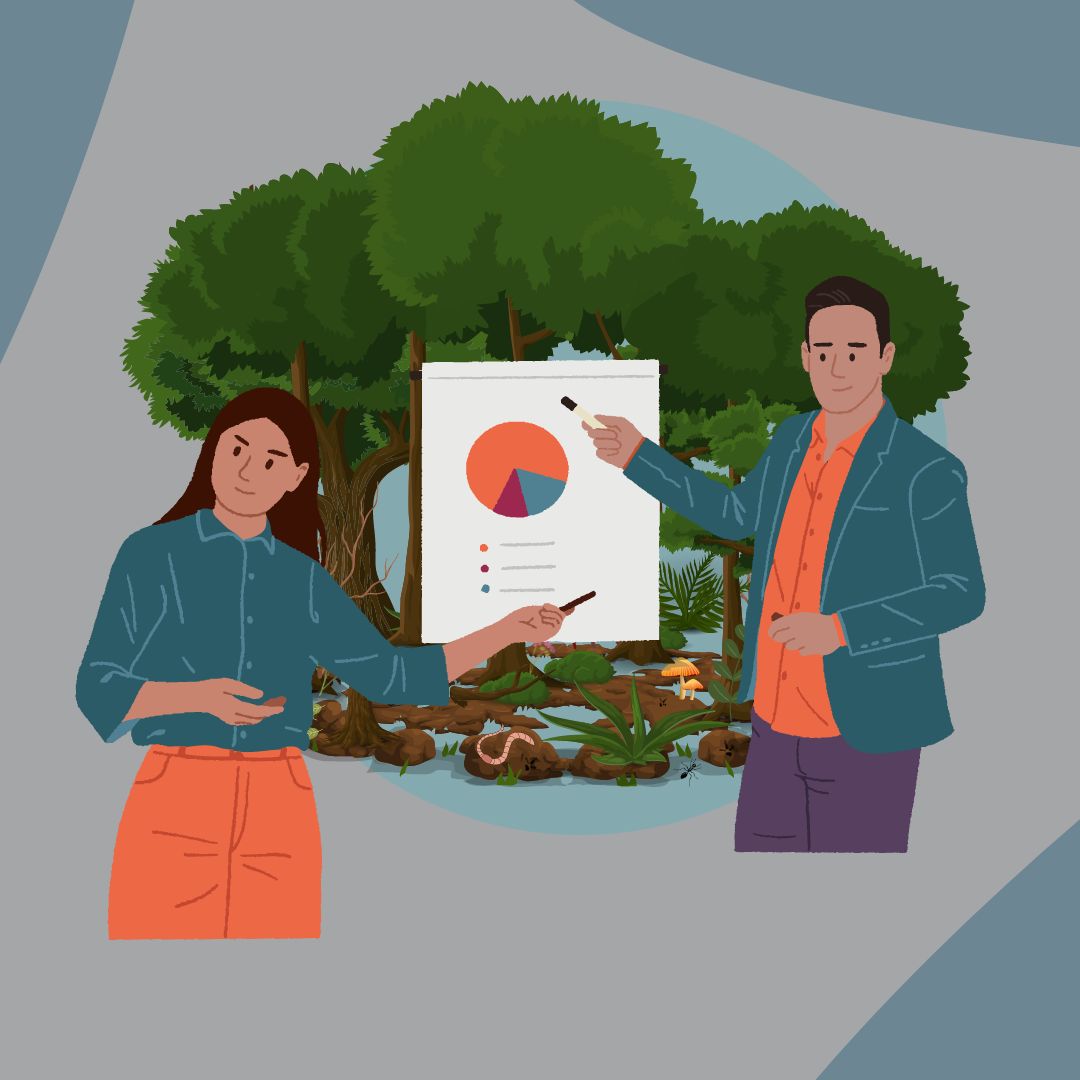
Regional strategies and action plans to maintain and enhance forest health
Project videos
HealthyForestRegions
The project lead partner is responsible for the content of this project website.
